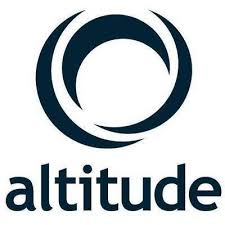Gastao Borges Taveira is a big name in Portugal’s small IT industry. Ex-McKinsey &Co consultant, ex-Credit Suisse bank, ex-head of the EU22 million European retail industry system integrator, Enabler.
When Portugal’s most significant software company – and arguably its only – went into receivership in March, he was not happy to stand by and watch it die. After all, he argues, Altitude Software is a company with cutting edge technology in one of the hottest markets in software, namely contact centres. Moreover, it has a customer base of 600 that includes BT, Vodafone, Credit Agricole, Hyder, Portugal Telecom, Coca-Cola and the Saudi British Bank.
In April, he led a rescue bid for the once high-flying software supplier as head of a consortium of Iberian venture capital groups and banks. The consortium paid an undisclosed sum for the company and put up EU8 million in fresh capital to restart it. Taveira himself took over the leadership role that was held by entrepreneur and former CEO Carlos Qunitas.
Under Qunitas’s tenure, the Lisbon-based company, which counted SAP and Intel among its original investors, burnt its way through EU78 million in venture capital over four years.
Taveira envisages a quick turnaround. “Our cash burn has stopped and after we clean up the balance sheet, we will be cash positive this year,” he says. That cash burn rate had clearly got out of control. In a breakneck expansion phase, the company opened 18 offices in 14 countries and increased its workforce to 370.
That was meant to be supported by a EU150 million initial public offering on the Amsterdam Euronext market, but the flotation was withdrawn in late 2000 as world equity markets crashed. In addition, revenues, which almost doubled in 2000 to reach EU32 million, suddenly went into sharp decline.
Taveira suggests that the company now has a revenue base of about EU20 million, after having resolved revenue recognition problems in Latin America and bad debt issues that involved defunct customers such as WorldCom. Half the offices have now been closed and staff levels reduced to 200.
Currently, 45% of revenue comes from Portugal and Latin America, with most of the remainder derived from elsewhere in Europe. Operations in the US and Asia, at one time vast investments for the company, have been scaled back dramatically.
In addition to the over-ambitious expansion, Taveira identified a miscued diversification into other areas of customer relationship management (CRM) as another major factor behind the company’s descent. As well as draining research and development resources, it made competitors of some of its partners in CRM. Furthermore, decision-making at board level had become sclerotic. “Altitude had a very complex shareholder base of 20 investors which meant it took too long for them to take the necessary measures for the changing market conditions,” says Taveira.
Revenues are now split almost evenly between the company’s earlier generation voice product, EasyPhone, and its multi-channel product, uCI (Unified Customer Interaction), a contact centre package for handling voice, email, web collaboration, chat and interactive voice response.
According to Taveira, the company, which competes against the likes of Avaya, Alcatel’s Genesys subsidiary and Divine’s eShare unit (also in the throes of bankruptcy), “has not lost a single existing customer”, though its previous financial position triggered many customers and prospects to postpone purchases.
Now it has to show it has the profile to earn the confidence of new customers.










